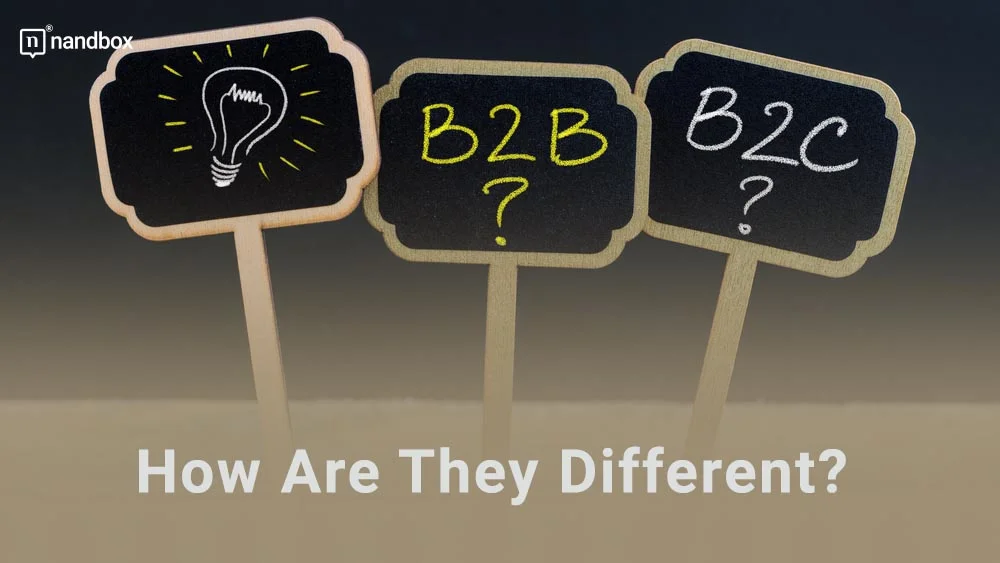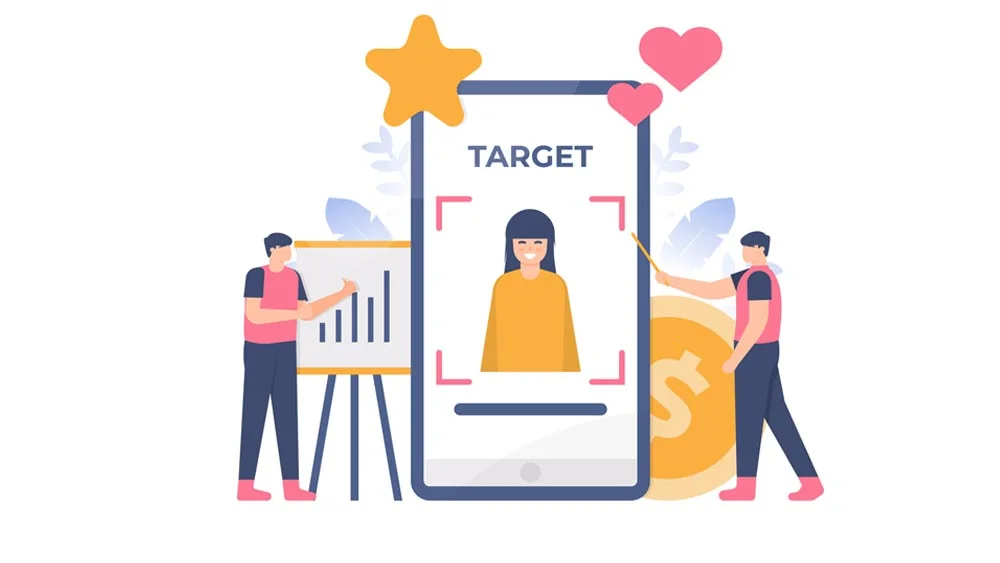There are many strategies and business models that we only know very little of. As the mobile app market witnesses exceptional and unexpected growth day by day. Some of the app owners and developers utilize some of these business models at the moment. To their surprise, it worked just as effectively as it would with products and services. One of the most crucial business concepts is B2B and B2C. You might have heard about them in many places, and that is because both models are extremely essential to all businesses. Not only to businesses, the idea of B2B and B2C app development is also becoming increasingly important, and businesses are shifting toward it. In this article, we’ll establish the ultimate comparison of B2B VS B2C. We will also walk you through each in terms of definitions, types, and examples.
What is B2B
You probably heard the term “B2B” somewhere; however, you never knew what it was. B2B, or business-to-business, is a broad term in the business world that has also successfully expanded into other fields as well. The terms define any business transaction or operation that takes place between two businesses. Business-to-business is a major part of any supply chain. It follows the journey of a business offering its products and services to another business that could benefit from them in its operations to be able to sell to end customers or users. For instance, a company that produces papers would offer the product to another company that makes sketchbooks or stationery products; this would be a b2b transaction.
Types of B2B Models
The forms that B2B comes in are uncountable, especially each day as new trends and business solutions emerge. The three main types of B2B models are:
1. Product-Based
The term “product-based B2B” refers to a type of business-to-business exchange in which the main item of trade is an actual physical item. These products can be, for instance, raw materials needed by the production line of another business.
2. Services-Based
On the other hand, a service-based approach focuses on services rather than physical goods. Here, the exchange between the companies is for a service, something intangible. As an illustration, a business that specializes in marketing and distribution can lend its services to help another business advertise and distribute its goods.
3. Software-Based
As a result of these advancements in technology, a new B2B method has emerged, one that is software-based. Providing SaaS, or software as a service, is commonplace in this type of business-to-business approach. There are a lot of SaaS firms that provide setup services for customer relationship management systems, security systems, and cloud hosting for other companies.
B2B App Development
Apps offer a great solution for any field like banking, healthcare, and many more. Apps were also expanded to include business operations as well. Back in the day, it would be very tiring, time-consuming, and money-consuming to find a business to collaborate with. Many businesses, for example, would specialize in a very niche market, so it would be hard for them to find another business that offered related products and services. Not only that, but B2B apps also streamline both internal and external operations, thus optimizing business performance.
Best B2B apps
There are many apps now that offer business solutions and are widely used. Our first example is Hootsuite. Hootsuite is a social media management app that lets businesses manage their online presence with a simple click. It allows a business to moderate all its social media channels in one place and gives a detailed insight into the performance of each channel. Another B2B app is WebEx. WebEx is an app that is known to optimize business operations and take communication in the workplace to a whole new level. Through this app, employees can conduct meetings, presentations, webinars, and even virtual events.
What is B2C
At the opposite end of the spectrum, we have B2C. B2C, or business-to-consumer, is the most common business model and the one we interact with on a daily basis. It is any transaction that takes place between a business and a customer. It includes all forms of transactions, such as face-to-face or online. Meaning that if a customer decides to buy something in-store or buys the same thing from any e-commerce platform, both are B2C transactions.
Types of B2C Models
B2C is more common among people than B2B, which is limited to businesses. It has many types, such as:
1. Direct seller
A direct seller is a business-to-customer model that we are most familiar with. It is when a customer purchases a product or service from the direct seller who produced it.
2. Intermediaries
The next model is the opposite of direct selling. The intermediary approach is when a customer buys a product or service from a seller that has nothing to do with its manufacture. The seller here acts as a mediator between the manufacturer and the customer. This approach is very popular on online e-commerce platforms like amazon, where anyone can display a product and the platform acts as a middleman.
3. Fee-Based
Fee-based is also one of the models that have gained recognition in the past few years. It is when a business offers its products or mostly its services, to customers in exchange for a subscription fee. The most popular example of such a model is any streaming-services company, such as Netflix. Netflix offers all customers access to an unlimited library of movies, TV shows, and documentaries for a monthly or yearly subscription fee.
B2C App Development
B2C app development has also seen a rise in recent years due to the widespread use of smartphones and mobile devices. Almost all businesses are going for B2C app development to reach more audiences and improve their brand visibility. With this demand, the development process has also expanded and is not limited to the traditional way. Businesses can now develop their apps using the no-code development that many platforms like Nandbox offer. With only a single click, they can create an app for their customers with many robust features.
Best B2C apps
One of the most popular B2C apps is Uber, which allows customers to quickly and easily hail a ride from their mobile devices. Another popular B2C app is Amazon, which allows customers to browse and purchase products online and have them delivered directly to their doorstep. Both of these apps have revolutionized the way we interact with businesses and have made our lives more convenient.
B2B vs B2C: Key differences
B2B and B2C may look the same. However, there are many major and key differences between the two approaches:
Target Audience
When it comes to B2B vs B2C, one of the major differences is who you are targeting. In B2B, you’re typically targeting other businesses that can provide a service or product to their own customers. This audience is usually very niche and hard to find. Thus, B2B has a much smaller audience than B2C.
When it comes to B2C, you’re targeting end consumers who will purchase your product or service for their own use. Knowing who you’re targeting is key to developing successful development strategies. B2C literally targets anyone who is interested in a product or service, and now all app users. This means that the B2C approach has a much wider and more diverse audience. Additionally, keep in mind that the B2B customer journey is different from the B2C, so it’s important to tailor your targeting and sales efforts accordingly.
Branding
Another important factor in B2B vs B2C is branding. For B2B companies, branding can help the company be known as an industry leader or an expert in a specific field, as the market is very niche. They have to make their specialization stand out. Additionally, branding can help build relationships with other businesses that can act as leads later on. On the other hand, for B2C companies, branding focuses more on creating a connection between the customer and the product or service offered by the business. This helps to ensure that customers feel connected to the brand or application and keep coming back for more.
Focus and Goal
B2B is more on the long-term side. The goal of B2B companies is to build long-term relationships with other businesses while focusing on providing excellent service or products in their field of expertise. In comparison, the goal of B2C companies is mostly to generate profit. This means that B2C companies need to have a strong presence in order to reach their target audience and increase conversion rates.





